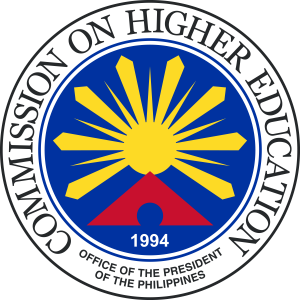Survey of major social science models and theories which impact on communication processes including persuasion, behavior and social change, etc.
- Communication and Related Social Science Models and Theories
3 Units
- Communication Audit
3 Units
The Asian Institute of Journalism and Communication (AIJC), in collaboration with the Public Relations Society of the Philippines (PRSP), launched the Master in Communication, Major in Public Relations and Corporate Communication program. The program is the first professional master’s program in communication and the first to focus explicitly on public relations and corporate communication within a structured academe-industry learning framework.
Designed for professionals in public relations, marketing communication, and related fields, the program offers a practice-oriented curriculum that integrates theoretical foundations with real-world application. It is structured to be completed in 15 months and requires the completion of 30 academic units, including a three-unit capstone or practice-based project.
The capstone or practice-based project allows students to develop and present applied work such as evidence-based public relations plans, research-informed PR tools, evaluations of PR campaigns, mobile applications for PR campaigns, and comprehensive PR and marketing communication training designs, among others.
This program is designed to strengthen professional practice by integrating academic rigor with industry engagement. It provides practitioners with the strategic and analytical skills required to meet the evolving demands of public relations and corporate communication practice.
ENROLL NOW
INQUIRE FOR RATESApplicants for admission to the AIJC Graduate School may be admitted after satisfying the following requirements:
In addition, Foreign students should present a Certificate of Eligibility and Study Permit from the Commission on Higher Education (CHED), and a copy of their Alien Certification and Registration.
Transferees may submit a true copy of their grades for assessment; relevant courses may be credited toward the AIJC program they want to pursue.
HOW IT WORKS
INQUIRE FOR RATESWe want to make it easy yet still comprehensive and hands-on by leveraging digital tools to aid in your admission journey.
Step 1: Accomplish the GS Online Application Form and submit the required documents [Link Here]
Step 2: Once confirmed, our Admissions Officer will verify your Interview and Entrance Exam Schedule via Mobile/Email.
Step 3: Ace the 1-on-1 Live Online Test and Interview (allot 2 hours).
Step 4: When you succeed, you will receive an Acceptance Letter (which would contain the Enrollment Rates) and a Conforme which you’ll need to sign and send a copy to our admissions officer.
Step 5: Process the Tuition Fee Payment via Bank Transfer and send Proof of Payment via Mobile/Email to our admissions officer.
Step 6: Once all is done, you’ll receive the Schedule of Classes and an exclusive invitation to join the AIJC MS Teams App Group.
*Check the Enrollment Schedule Here.
Are you a continuing student? Please click here.
3 Units
3 Units
Required Courses: (6 units)
Any two of the following:
3 Units
3 Units
3 Units
Major Courses: (6 units)
Any two of the following:
3 Units
3 Units
3 Units
3 Units
3 Units
3 Units
Any two of the following:
3 Units
3 Units
3 Units
It provides the student an opportunity to exhibit the knowledge and skills obtained during the course of graduate study. The student presents the capstone project to a panel or committee of experts for grading and evaluation.”
The capstone project also may be in the form of a reentry plan. It will identify the concrete changes to be made by the student in the performance of his/her work, incorporating lessons gained or competencies acquired from the graduate program he/she is about to complete.
The capstone project shall identify research-based innovative strategies and activities and the expected outcomes.
Evidence of the capstone project's realism and practicability, degree of ease in implementation, and feasibility in terms of cost should be given special attention.
What You Get:
Class Schedules:
*Manila, Philippine Time
Recognized by:

Communication and Related Social Science Models and Theories
Survey of major social science models and theories which impact on communication processes including persuasion, behavior and social change, etc.
Communication Audit
The communication audit is a process that companies go through in order to determine how good their communications are. Communication involves how a company or organization sends and receives information; or shares it with varying audiences.
Strategic Communication Program Management
Strategic leadership and communication program development, management and evaluation. It emphasizes basic communication research, strategic communication objectives and message design, selection of media, development of materials, management of teams and impact evaluation.
Stakeholder Relations Management
Communication strategies and tools in establishing, sustaining, and enhancing relationship with internal (e.g., governing board, stakeholders, employees) and external (e.g., government, customers, suppliers and the community) stakeholders.
Ethics, Media Laws, and Relevant Transnational Agreements.
Ethics is a system of principles that guides action. While the law establishes what can and cannot be done in given situations, an ethical lapse can erode public trust; and in turn devalue the work of all PR practitioners. Ethics upholds personal, professional, social and moral values. Ethics and Law create a moral compass for navigating ethical dilemmas. The course features a survey of national laws and international agreements and protocols which impact on the communication profession and its practice.

Public Relations Managers and Consultants:

Social Media Managers/Strategists:

Government Public Affairs Officers:

Investor Relations Managers: